Top Ten Most Hostile Planets In the Solar System
It looks so great and majestic, with so much to see. But looks can be decieving.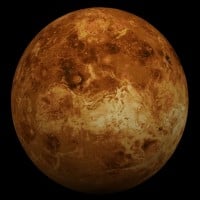 Venus is the second planet from the Sun and the closest planetary neighbor to Earth. Known for its bright appearance in the sky, Venus is sometimes referred to as the "Evening Star" or the "Morning Star." The planet has a thick atmosphere primarily composed of carbon dioxide, leading to a greenhouse... read more
Venus is the second planet from the Sun and the closest planetary neighbor to Earth. Known for its bright appearance in the sky, Venus is sometimes referred to as the "Evening Star" or the "Morning Star." The planet has a thick atmosphere primarily composed of carbon dioxide, leading to a greenhouse... read more 1 solar day on Venus is 116.75 days but there is 24 hour daily cycle running at the same rate as on Earth.
1 solar year on Venus is 225 days so there are 9 months with 25 days each.
OMG! Even metal can melt in this planet. The heat inside the planet cannot escape through the thick atmosphere. Even hotter than mercury. You can even cook an egg withing that sizzling temperature.
Venus is coated with a thick, choaking atmosphere, that causes acid rain, intense heat, deadly storms, and god knows what else. And yet, they named the planet after the godess of beauty...

This is the biggest planet in our whole solar system that it is about 11 times wider than earth! And 1,300 earths can fit inside Jupiter! Wow!
Jupiter's atmosphere is even thicker than that of Venus. Jupiter is composed of 90% hydrogen, and 10% helium. However these percentages vary depending on different sections of the planet. Jupiter has no solid surface, although it may have a rocky core. The planet is also affected by inhuman storms which have caused several bumps on the planet's apperance. The most notable of these is the great red spot, a dip three times the size of Earth.
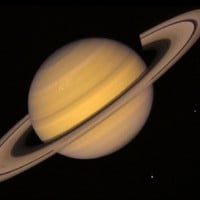 Saturn is the 6th planet from the Sun, it is the second-largest and has the most moons. One year on Saturn is 29 Earth years (10,756 Earth days). Saturn is known for its rings. Saturn is a gas giant, so there is no solid surface on the planet. It is also almost 1 billion miles away from the Sun. The... read more
Saturn is the 6th planet from the Sun, it is the second-largest and has the most moons. One year on Saturn is 29 Earth years (10,756 Earth days). Saturn is known for its rings. Saturn is a gas giant, so there is no solid surface on the planet. It is also almost 1 billion miles away from the Sun. The... read more Woah! Wow! Look at how big Saturn is! It like 9 times wider than earth, and that too is 72,400 miles or 116,464 km
Ring planet, Saturn is cool just like how Venus is!
Notice how the most beautiful of planets are also the most deadly? Saturn is often called the Jewel of the solar system, due to it's majestic rings. Saturn also has the most moons in the solar system - although anything within it's rings could be considered a small moon. Saturn is composed of the same material as Jupiter, except Saturn is featureless.
Stupid fast winds actually the fastest in the solar system. Disgusting stinky atmosphere, made of hydrogen and helium. Has traces of neon, argon, krypton, xenon and radon. And the rings are horrible to look at they hurt my eyes, when I look at it through a telescope ( I have an ETX 80 observer ). Saturn sucks, Uranus rules!

I love absolutely everything about Neptune! Oh my god! Strongest winds of about 2,000 kph. Which is even faster than speed of sound on earth!
Yaaay I love neptune it is My favourite planet in our solar system! I also like Uranus too but Neptune is best friend! Not very hostile though, But Ayyyyooo! Strong winds! Neptune has a diameter of 30,600 miles which is 49,250km! And is about 4 times wider than earth
You could potentially survive for a while if you had a pressure suit that was insulated because you would just fall through the atmosphere and not standing on anything so the gravity wouldn't kill you instantly.

If you think about it, Earth is pretty hostile. Super volcanoes, earthquakes, hurricanes, tornados, floods, droughts... The list goes on.
The only reason I voted for this is because humans make it harder to live here than on Venus.
Yes! Our home planet! it has air water and life. We're very lucky to live here!
I love you Mother Earth too!
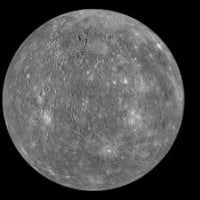
Mercury is basically a giant steaming rock that orbits the sun in close proximity. A Mercurian year lasts about 80 days - however a Mercurian DAY lasts about 60 Earth days. Imagine being exposed to heat more than 20 times that of Earth for 60 days straight. Plus, you'd be without the protection of an atmosphere.
Extremely close to the sun so you would burn to death if you were on the sunny side and if you were on the night side you would freeze to death. Also radiation is really strong.
Impossible to live through. Either die from heat or die from the cold.
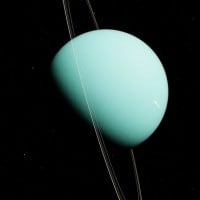 Uranus is the seventh planet from the Sun in our solar system. It was discovered by William Herschel in 1781, making it the first planet to be discovered with a telescope. Unique among the planets, Uranus has an axial tilt of about 98 degrees, causing it to rotate on its side. Composed mainly of hydrogen,... read more
Uranus is the seventh planet from the Sun in our solar system. It was discovered by William Herschel in 1781, making it the first planet to be discovered with a telescope. Unique among the planets, Uranus has an axial tilt of about 98 degrees, causing it to rotate on its side. Composed mainly of hydrogen,... read more 1 solar day on Uranus is 17.24 hours, so there is a 24 hour daily cycle which is 1.392x faster than on Earth.
1 solar year on Uranus is 42,718 Uranian days, so there is a calendar which has 3,286 months with 13 days each.
This is clearly more hostile than Mars. Really wish I'd labelled this list objective.
It be stankin' something fierce with all that hydrogen sulfide in its atmosphere.

Probably the least hostile planet behind earth. Really cold and minimal atmosphere but other than that its not that bad.
The surface is barren and sandstorms often sweep over it.
Imagine a war between Earthlings and Martians.
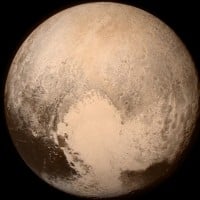
Extremely cold it should definitely be higher than mars. It is so cold that nitrogen freezes into ice on its surface.
Wind can go more than 1 million miles per hour!